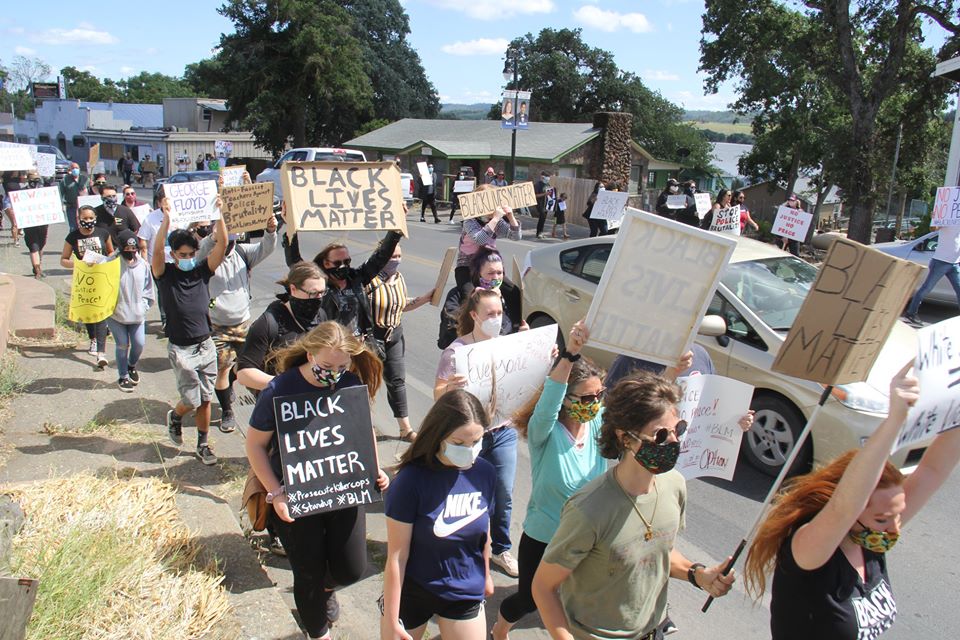
SACRAMENTO— Lawmakers took an unprecedented two-month pause in the spring, when Gov. Gavin Newsom issued a statewide order for people to stay home to prevent the spread of the virus. They returned to the Capitol in May, passed a state budget shrunken by the pandemic-induced recession, and began setting aside hundreds of bills that would no longer make the cut in this truncated year. Faced with less time to hold hearings and less money to spend on new initiatives, lawmakers chucked an estimated three-quarters of the bills introduced at the beginning of the year.
Abandoned or rejected along the way were bills requiring police to intervene if they see officers using excessive force, allow homeowners to request a forbearance on their mortgages during the pandemic, and launch a “Green New Deal” to fight climate change.
But even with their reduced workload, lawmakers tackled numerous thorny issues, passing legislation that could impact life in California for years to come — to allow more workers to take paid family leave, make it easier to get mental health care, and ban flavored tobacco, among others.
Now it’s up to the governor to decide if their ideas should become law. Below are some of the most interesting decisions he faces. We’ll be tracking their fate through the bill-signing period, which ends Sept. 30.
Creating a reparations committee
WHAT THE BILL WOULD DO
AB 3121 would establish a nine-member task force to inform Californians about slavery and recommend ways the state can provide reparations. The committee would submit its findings to the Legislature. The bill, by San Diego Assemblymember Shirley Weber, a Democrat, had been quietly weaving through the Legislature before protests nationwide erupted over the death of George Floyd.
WHO SUPPORTS IT?
Supporters include the Western Center on Law and Poverty, the American Civil Liberties Union of California, a large coalition of social justice groups and several politicians, including Los Angeles Mayor Eric Garcetti and state Insurance Commissioner Ricardo Lara.
WHO’S OPPOSED?
Republican lawmakers largely voted against the proposal. Assemblymember Kevin Kiley, a Rocklin Republican, believes that “the federal level is a more appropriate place for this discussion to take place,” according to his chief of staff. Some Republicans, including state Senators Ling Ling Chang of Diamond Bar and Brian Dahle of Bieber, voted in favor.
WHY IT MATTERS
The task force would not have the power to implement reparations, but it would try to answer questions about who would pay and who would get paid. Descendants of people who were enslaved would get special consideration for payment. Five members would be appointed by the governor, while the Assembly speaker and the Senate’s president pro tempore would appoint two each. California joined the Union as a “free state,” but it enacted a fugitive slave law in the 1850s that allowed slaves as long as they were eventually moved back to the South.
GOVERNOR’S CALL
Unknown at this time.
Overseeing workplace COVID-19 outbreaks
WHAT THE BILL WOULD DO
AB 685 would require employers to notify their employees of potential COVID-19 exposures in the workplace. It also requires they alert their local health department of outbreaks, defined as three or more positive cases within 14 days. Finally, it strengthens the power of Cal/OSHA, the state agency charged with regulating workplace safety, to enforce these rules and even to shut down any worksite deemed to be an “imminent hazard” to employees because of COVID risk.
WHO SUPPORTS IT?
The California Labor Federation, which represents over 1,200 unions in manufacturing, retail, construction and hospitality, among other industries. Other groups include workers’ rights advocates like California Rural Legal Assistance, the Latino Coalition for A Healthy California, and professional associations like California Professional Firefighters.
WHO’S OPPOSED?
The California Chamber of Commerce and a long list of industry lobbies representing agricultural, hospitality, and construction employers, among others. These include California Building Industry Association, the California Association of Winegrape Growers, California Hotel & Lodging Association, Western Growers Association, to name a few.
WHY IT MATTERS
Currently, the state simply advises employers to notify workers and their local health agency of suspected outbreaks. But massive outbreaks in workplaces — ranging from agricultural guest workers living in tightly-packed hotel rooms to chicken processing facilities to pistachio plants — have revealed that employers frequently don’t follow those guidelines. Counties vary widely in whether and how they track employer outbreaks.
If signed into law, this would create an enforceable statewide standard for how employers handle outbreaks beginning January 1, 2021. Even so, a number of its provisions were struck out in the last week to get the necessary votes: among them, a requirement that the state publicize all ongoing workplace outbreaks, a $10,000 penalty, and a presumption that employers were retaliating if they fired an employee who fell ill or asked for a COVID test, for example.
GOVERNOR’S CALL
Unknown at this time.
Editor’s note: Check back with future editions of the Record-Bee or online at Record-Bee.com for the status of these bills and others pending the Governor’s approval or veto.





